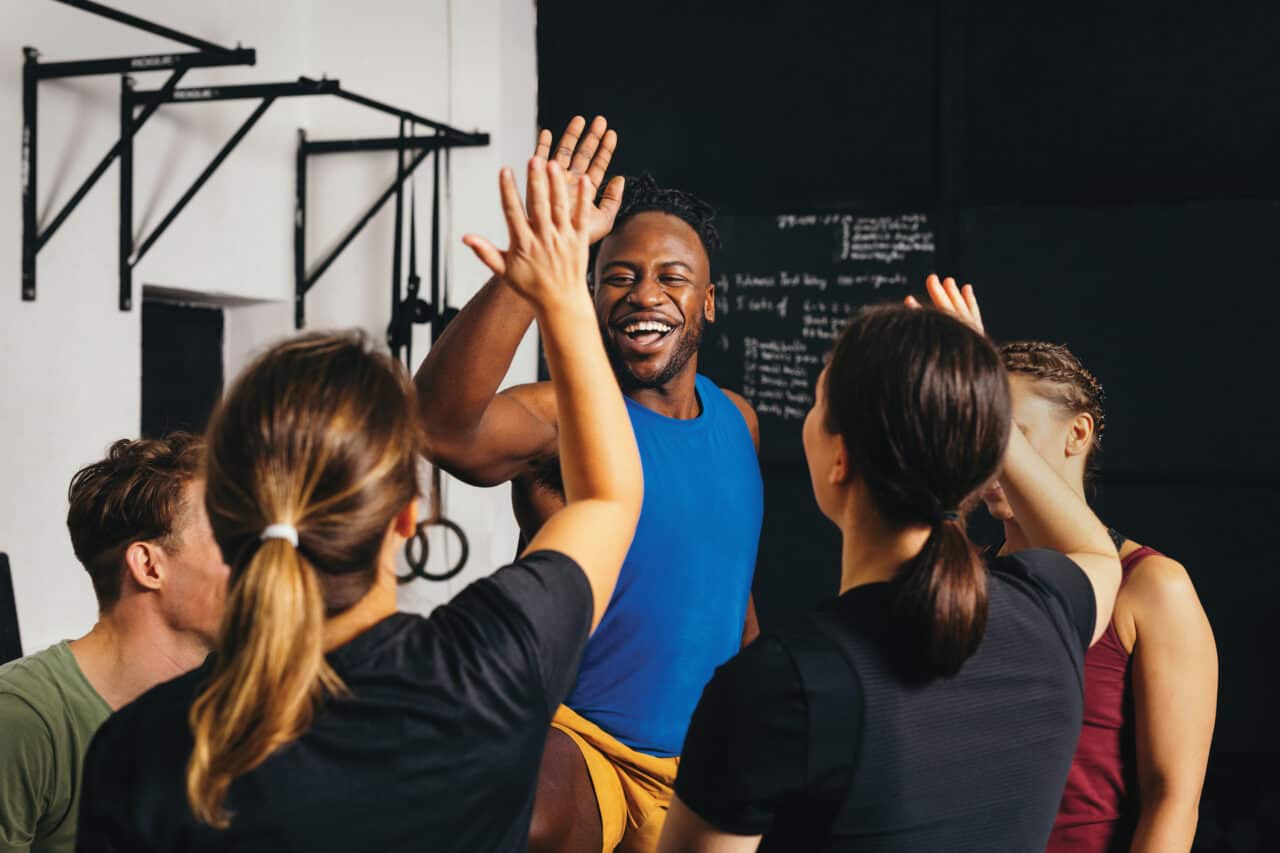
Ramadan and Sports – Tips for Healthy and Active Fasting
It’s that time again – the islamic month of Ramadan has begun! For many in our community, myself included, this means not only spiritual reflection but also a change in daily lifestyle, including physical activities. But don’t worry, just because you’re fasting doesn’t mean you have to give up on your fitness goals. I have been combining Ramadan and sports along with my daily work routine for many years now. To help you as well, I have compiled some tips on how to effectively combine Ramadan and sports without neglecting your health.
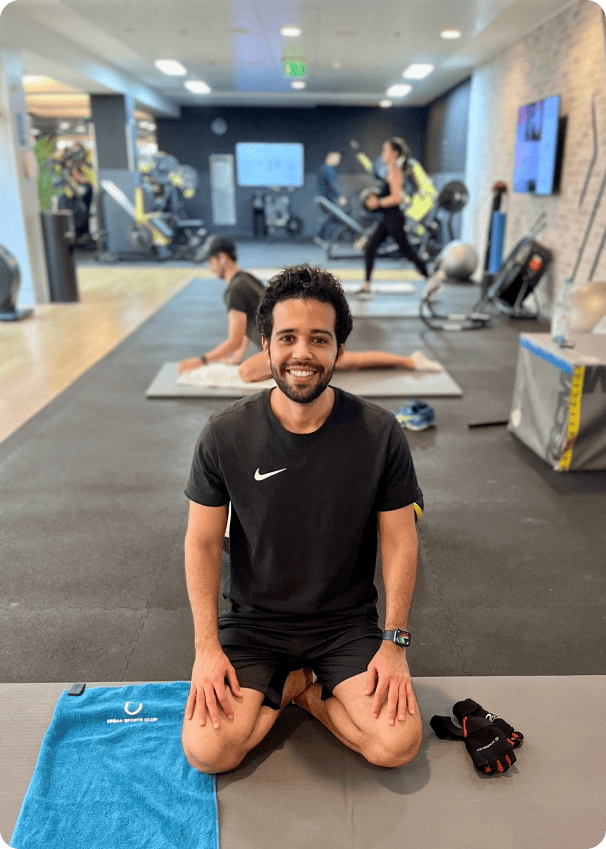
About me: I’m Mohamed, and I’ve been part of the Urban Sports Club team for over seven years now. Currently, I work as the Head of Growth Marketing and Martech. As a Muslim, I integrate Ramadan with physical activities and my professional life every year.
What is Ramadan anyway?
During Ramadan, practicing Muslims fast for an entire month. During daylight hours, specifically from dawn to sunset, they abstain from food and fluids – which can be a real challenge for the body. However, if you still want to maintain your exercise routine during fasting, there are several things to consider.
Ramadan and Sports – Does it Work?
The short answer: Yes, it does work! However, there are some challenges and considerations you need to keep in mind. Generally, during Ramadan, you should ease up and always listen to your body.
What Science Says: Pros and Cons of Ramadan and Sports
The interaction between Ramadan and sports has been extensively researched. Fasting can indeed have positive effects such as weight loss, improved insulin sensitivity, reduced inflammation, and increased autophagy. It can also enhance mental wellbeing through stress reduction, improved mood, and heightened spiritual awareness. Exercising during Ramadan can also improve heart health and foster a sense of community. However, it may also lead to nutrient deficiencies and metabolic issues, which is why it’s essential to educate yourself on the subject.
Ramadan and Sports – What are the 5 Biggest Challenges?
Combining Ramadan and sports poses a unique challenge, as fasting affects daily routines and physical performance. Here are the five biggest challenges that may arise during Ramadan:
1. Dehydration

Dehydration, or inadequate fluid intake, is a significant challenge during Ramadan, especially if you engage in physical activity while fasting. In Germany, fasting can last up to 16.5 hours per day. Training sessions on an empty stomach may still be manageable for many, but without fluid intake and enough hydration, it can become problematic.
Fasting increases the risk of dehydration, especially during intense exercise and high temperatures. Your body loses fluids through sweating, which can lead to circulatory problems, muscle cramps, headaches, dizziness, and nausea. Fasting may make you feel less energetic during the day than usual, and exercising can exacerbate this strain. Therefore, drinking during iftar (the breaking of the fast) is crucial.
2. Energy Deficiency
Fewer calories also mean less energy. The lack of energy and endurance can impair your performance during exercise. You may feel tired more quickly or unable to reach your full potential. Additionally, the fasting period is not an ideal time for muscle building, as you often burn more energy than you consume. Therefore, focus more on maintaining your muscles.
3. Time Management
Since many Muslims engage in additional prayers and religious activities during Ramadan, it can be challenging to find enough time for training and recovery, especially when the best times for training are before sunrise or after sunset.
4. Sleep Deprivation

Many Muslims stay up later during Ramadan to eat, pray, or spend time with the community, which can lead to sleep deprivation. This can negatively impact your athletic performance, since adequate sleep is essential for muscle recovery and regeneration. Additionally, sleep deprivation can make you less focused during exercise – making you more prone to injuries. Therefore, always listen to your body and allow yourself the rest you need.
5. Nutrition
Fasting during Ramadan can lead to a deficiency in essential nutrients, especially if meals during iftar are not balanced. Therefore, pay attention to your nutrition during iftar, ensuring you consume sufficient protein, carbohydrates, fats, vitamins, and minerals.
My 8 Favorite Sports to Stay Active During Ramadan
Over the past seven years with Urban Sports Club, I’ve tried many new sports during Ramadan to adjust my exercise routine to the physical demands of fasting. I’ve found that sports with lower impact and lower dehydration risk are best suited for this purpose.
1. Swimming
A sport I highly recommend during Ramadan is swimming. Not only is it a great way to exercise, but it also provides refreshing relief. Moreover, swimming is joint-friendly, and the risk of dehydration is significantly lower.
2. Yoga
Yoga is one of my favorites because it not only keeps me physically active, but also helps me reduce stress. I prefer yoga sessions in the early morning or late evening to align with the quieter moments of the day and enhance the spiritual experience of the month.
3. Gym Workouts
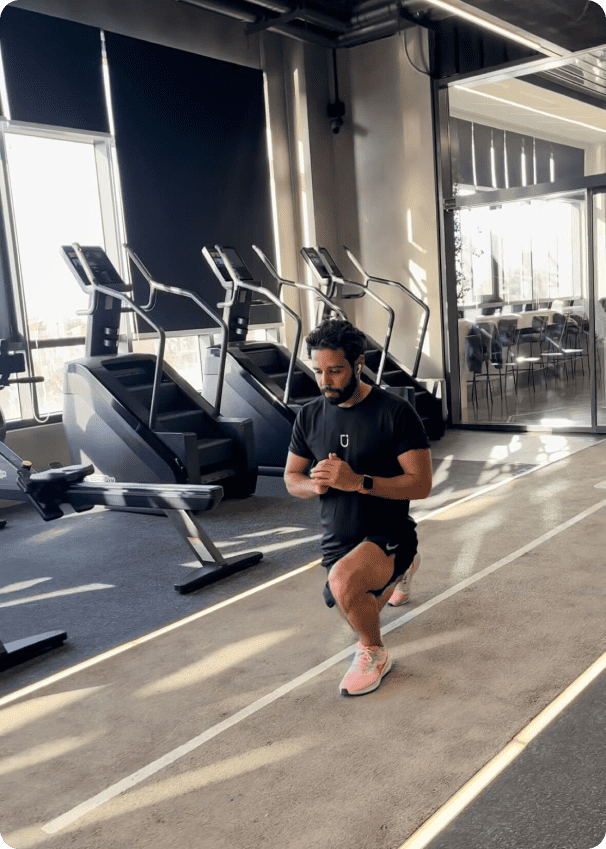
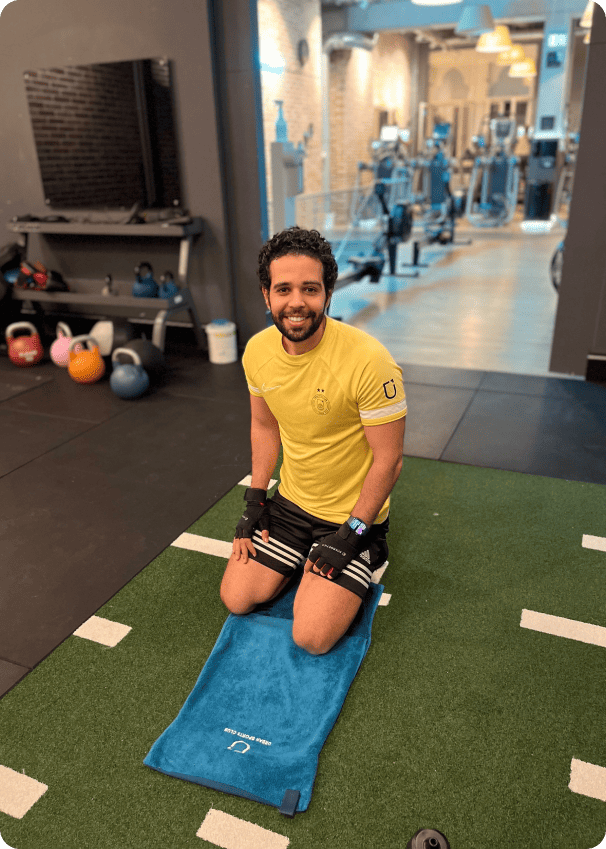
Building muscle during Ramadan can be challenging due to reduced calorie intake and limited recovery capacity. Therefore, it’s advisable to focus more on maintaining muscle mass rather than muscle building. Ensure that your meals contain enough protein to support muscle recovery. Fitness enthusiasts should focus on strength training with lighter weights and higher repetitions to avoid overexertion during fasting. Early evening workouts, either just before iftar or after iftar, are particularly effective as they allow optimal energy utilization from the meal.
4. Running/Jogging
Running enthusiasts can maintain their routine by preferably being active just before suhoor (pre-dawn meal) or in the evening after iftar. Consider shorter distances and reduce your pace to adapt to changes in hydration and energy levels.
5. Cycling/ Indoor Cycling
Indoor cycling can be intense, so if you prefer not to skip it, consider classes with lower intensity to maintain endurance without overexerting yourself. Timing these classes shortly after iftar can provide you with the necessary energy and hydration.
6. High-Intensity Interval Training (HIIT)
Be cautious with high-intensity interval training (HIIT) during fasting. However, if you insist on including HIIT in your workout routine, plan these workouts after iftar. This way, you can ensure that you have consumed enough water and nutrients. Pay close attention to your body’s signals during intense workouts.
7. Bouldering
Bouldering is a great option to stay active during Ramadan. You can increase your fitness and build muscles without lifting heavy weights. It’s best to plan your bouldering sessions just before or after iftar to benefit from the energy of your meal and stay well hydrated.
8. Racket sports
Racket sports like Padel and squash are not only great for physical fitness but also offer a social element that can be particularly enjoyable during Ramadan. Schedule matches after Iftar to ensure you’re well-fueled and hydrated, and perhaps lower the intensity and duration of your games.
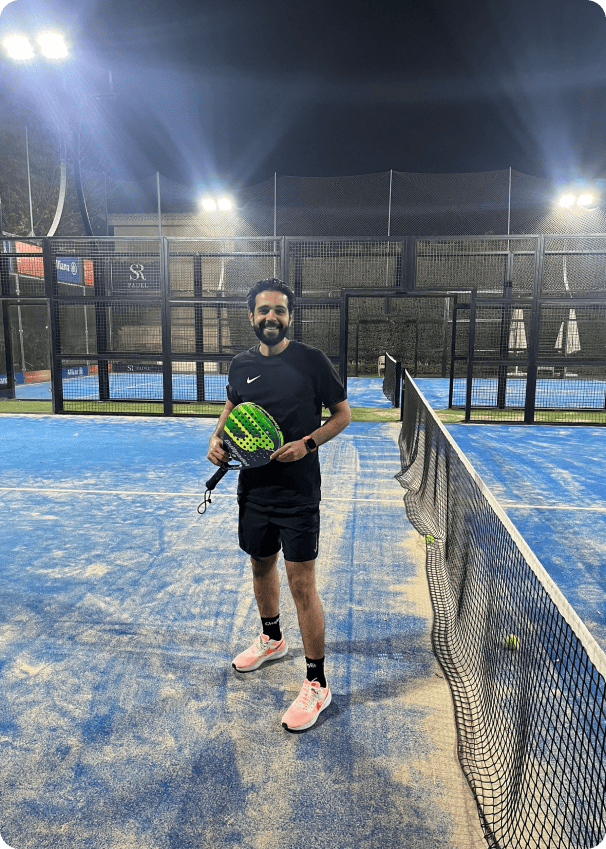
My 8 Tips for Successfully Combining Ramadan and Sports
1. Timing is everything
During Ramadan, your eating and sleeping habits change, which can also affect your workout routine. Make sure to schedule your physical activities at times that suit you best and consider your energy levels. Many fasters, like myself, prefer to exercise just before iftar, the evening meal for breaking the fast.
2. Choose the right sport
While muscle building may be important for many, it’s even more crucial to choose a sport that doesn’t jeopardize your health. Avoid intense workouts and try activities like yoga, Pilates, or swimming instead. These sports are not only gentle on your body, but also promote flexibility and relaxation.
3. Pay attention to your nutrition and hydration
Even though you fast during the day, it’s important to keep an eye on your nutrition and fluid intake outside fasting hours. Ensure you eat a balanced meal after iftar and drink enough water to supply your body with the necessary nutrients and fluids. Avoid overeating and focus on easily digestible foods that stabilize your energy levels. Every body reacts differently to fasting, so it’s crucial to listen to your body’s signals. Don’t force yourself into intense workouts; instead, pay attention to your limits and take breaks when needed.
4. Community and motivation
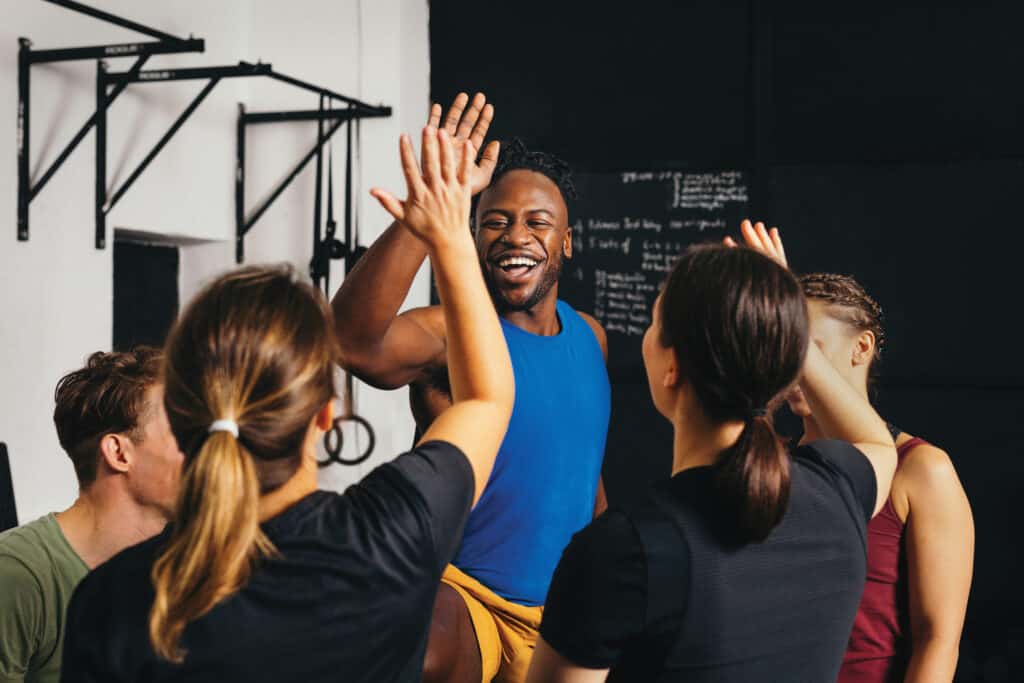
Use the community to stay motivated and active during Ramadan. Look for like-minded individuals and new contacts to train together and support each other. Training together can not only boost your motivation, but also provide a great opportunity to make new friends or connect with new people and create a supportive environment.
5. Set realistic goals
It’s essential to set realistic fitness goals and muscle-building goals that match your current situation. You may need to adjust your training level or lower your expectations – and that’s perfectly okay. By setting achievable goals, you can track your progress effectively and stay motivated to remain active.
6. Make use of the morning hours
The early morning hours offer a great opportunity to squeeze in a workout before the fasting day begins. Before starting your fast, you can do a short workout to activate your body and refresh your mind. A morning jog or a relaxing yoga session can help you start the day energized.
7. Mix it up!
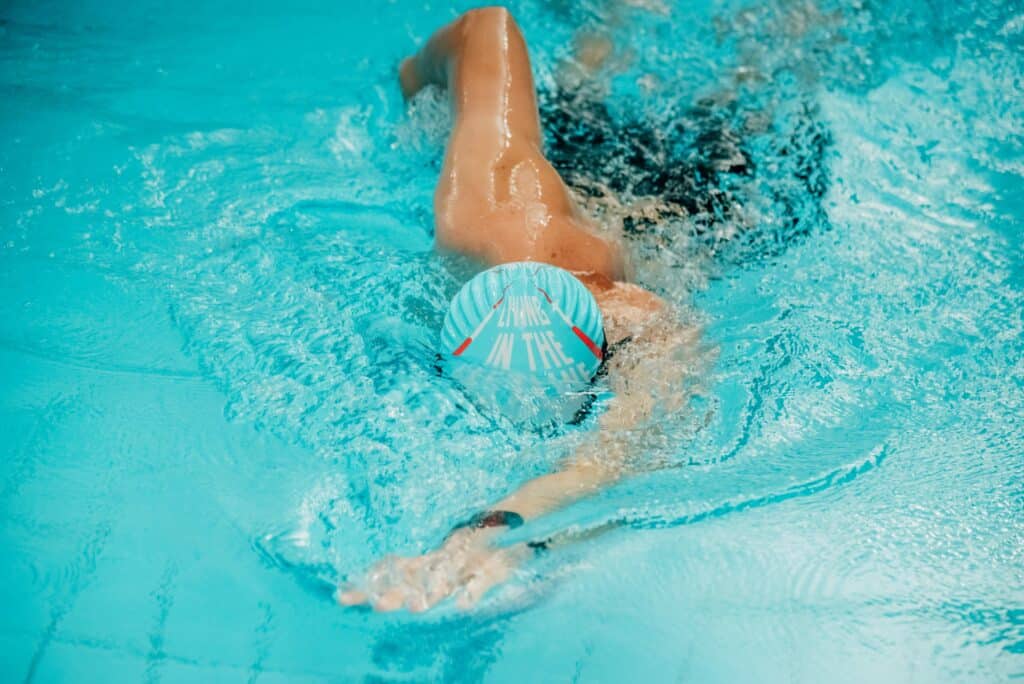
As mentioned above, I’ve tried many different sports with Urban Sports Club over the years – especially to combine Ramadan and fitness. So instead of very strenuous HIIT workouts, I prefer yoga sessions or swimming. To keep your training interesting during Ramadan, try out different sports and training methods. This way, you can challenge your body and mind while having fun.
8. Enjoy the quiet break
The month of Ramadan also offers a valuable opportunity to take a break and focus on the spiritual dimension of fasting. Use this time to relax, find/strengthen your spirituality, and collect your thoughts. It’s important to maintain your inner balance. Therefore, during Ramadan, dedicate your time not only to training, but also to spiritual reflection.
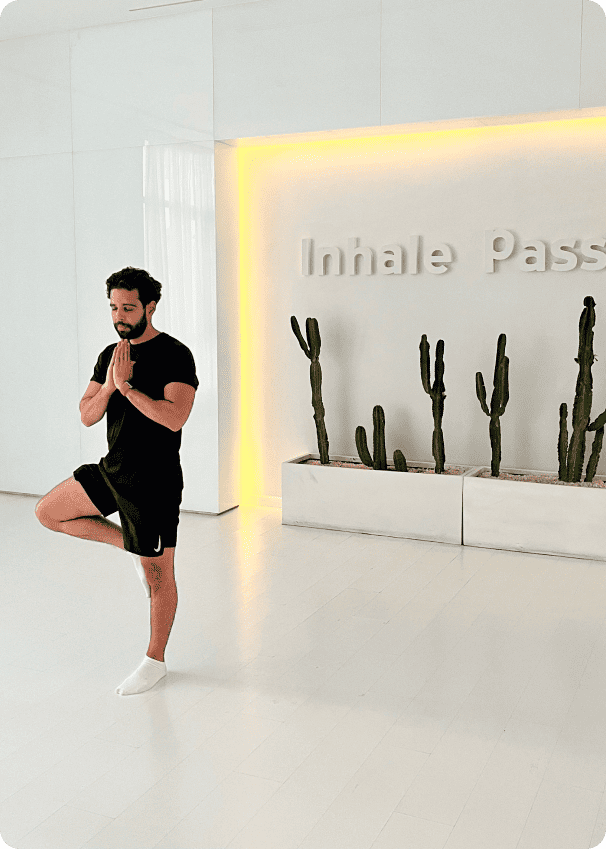
As you can see, the month of fasting during Ramadan provides a perfect opportunity to incorporate flexibility into your fitness routine. By adjusting the timing, intensity, and type of your workouts, you can continue to stay active, respect the fasting period, and find new ways to enjoy movement. Thanks to the diverse offerings of Urban Sports Club, you’ll surely find activities that fit your Ramadan schedule, no matter what your preferences are. Ramadan Mubarak and have fun training and trying out new sports!
Important: These tips are based on personal experience and are not a substitute for professional advice.



Comments